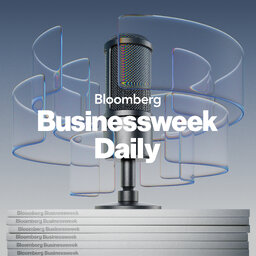Meta Sales Surpass Estimates on Advertising Growth
Watch Carol and Tim LIVE every day on YouTube: http://bit.ly/3vTiACF.
Bloomberg News Contributor Jon Erlichman and Bloomberg News Social Media Reporter Aisha Counts break down Meta reporting better-than-expected sales for the second quarter, offering evidence that the company’s heavy investments in artificial intelligence are helping it sell more targeted and personalized advertisements. Nate Thooft, CIO at Manulife Investment Management and Bloomberg News Rates Reporter Michael Mackenzie discuss the impact of the Fed decision on the markets and the economy. Frank Sorrentino, CEO at ConnectOne Bank, explains what Fed policy means for banks and small businesses.
Hosts: Carol Massar and Tim Stenovec. Producer: Paul Brennan.
In 1 playlist(s)
Bloomberg Businessweek
Listen for reporting from the magazine that helps global leaders stay ahead. Hosts Carol Massar an…Social links
Follow podcast
Recent clips

Treasuries Sink as Oil Jumps on Iran War, Stoking Inflation Fears
36:12

Vir Bio's Cancer Treatment Progress Driving Shares Hight
11:13

Introducing: Bloomberg This Weekend
01:08
 Bloomberg Businessweek
Bloomberg Businessweek